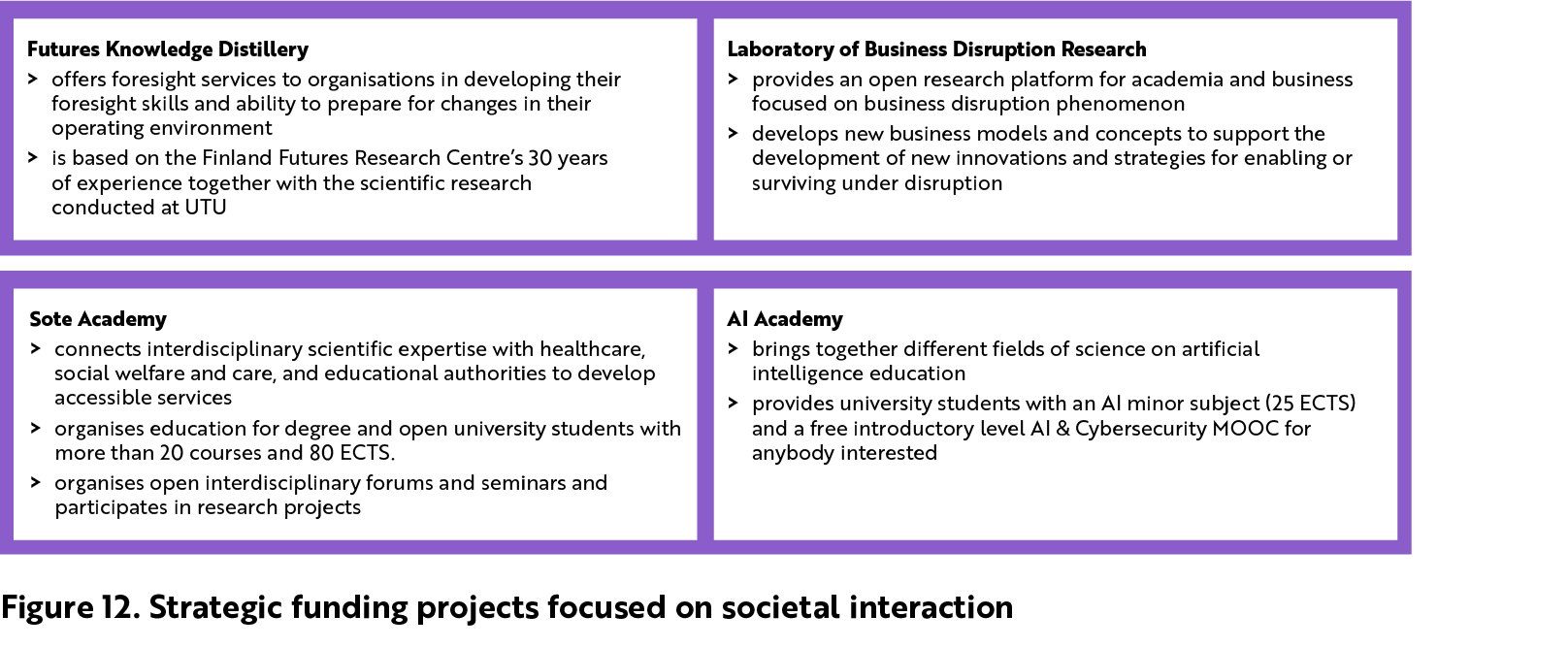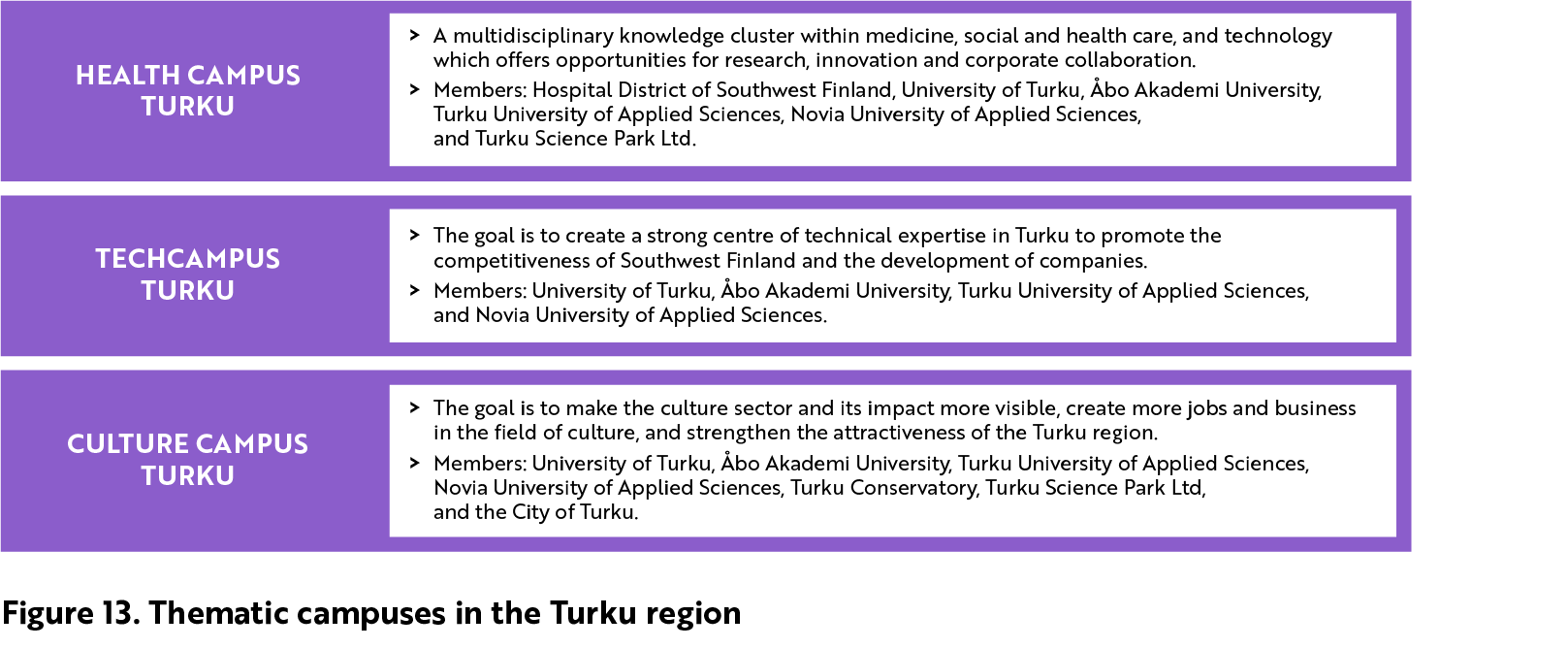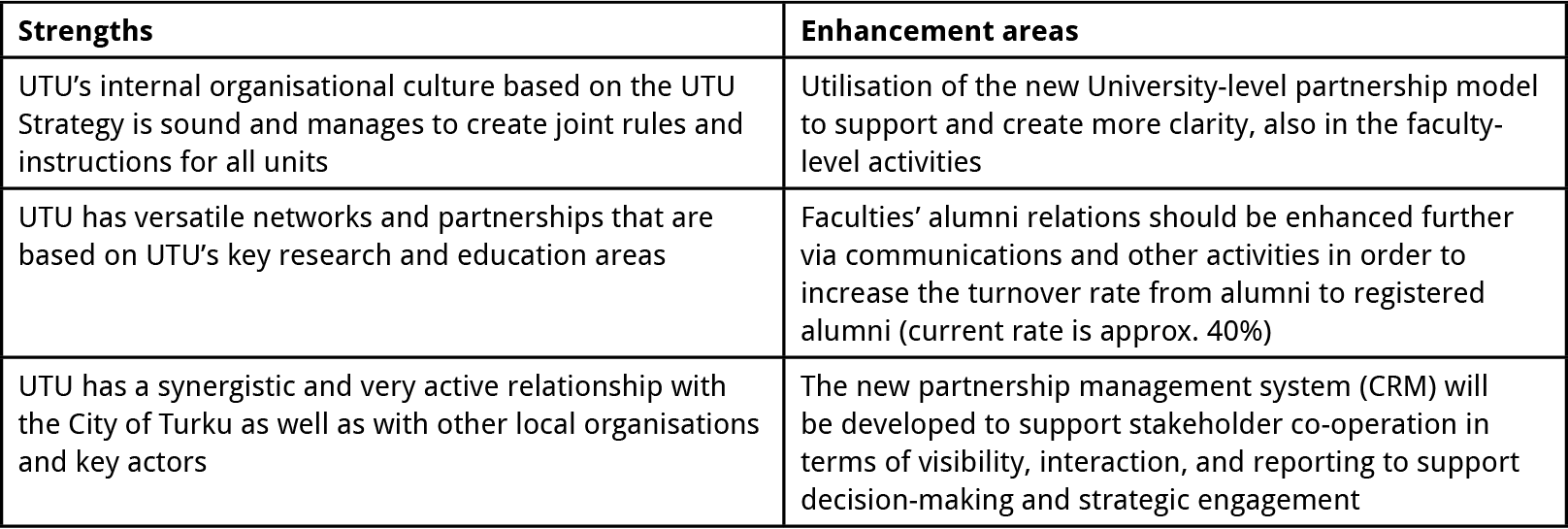UTU engages with stakeholders and partners in activities which enable renewal and enhancement. It aims to be in close contact and collaboration with its stakeholders and to take their feedback seriously. According to the audit interviews, the organisational structure is flat, and the faculties are quite independent. As indicated in the interviews, the culture of the University encourages the whole community, staff, students and external stakeholders to communicate with UTU management and benefit from the joint support function. As described in Chapter 1, the Student Union (TYY) and students have a strong representation and voice in the University’s development overall, especially in education. External stakeholders are represented in the university- and faculty-level advisory boards and UTU generally works closely with its stakeholders.
The University sees its cooperation with alumni as part of its societal impact. Alumni constitute an important category of UTU stakeholder involvement and management and are to be used in enhancement activities. Beyond these ambitious statements, the University’s action and support in this area are still unfolding (see Chapter 4.1). The audit team recommends that UTU develop its alumni cooperation further.
The University of Turku values close collaboration in regional, national and international networks and sees its mission to stretch from local to global. UTU uses field-specific, regional, national and international networks in activities enhancement. The European Campus of City-Universities (EC2U), one of the European Universities Alliances, is one of UTU’s most prominent international networks. Its research performance has benefitted from growth in international collaboration. UTU is still actively seeking new strategic networks and mapping international networks. The audit team recommends that the University utilise its existing international networks more and take full advantage of being part of the EC2U Alliance and developing multidisciplinarity. The University of Turku should also develop criteria for attracting international partnerships.
Strategic alignment of regional, national and international ambitions will be essential to UTU’s success. An innovation ecosystem approach with a regional focus will be enriched by international networking. Stakeholders expect the University of Turku to bring international academic talent, knowledge and resources to the region to broaden, attract, and retain the talent base and to improve the investment climate. Considering the relatively low number of international experts, extra efforts should be made to bring in international expertise and attract foreign talent. The University of Turku could especially welcome multidisciplinary research expertise.
Good examples of partnerships promoting impact and renewal include Bayer Nordic SE and Mayer Turku. Through strategic partnerships, UTU wants to build strengths-based cooperation that promotes both parties’ sustainable growth, competitiveness and vitality, supported by research, educational provision and societal engagement.
There are also good initiatives to support entrepreneurship. One of those is Konttori, Entrepreneurial Hub and a working space for students and staff focusing especially on start-ups. Cooperation with Liedon Säästöpankki has made this possible.
There are two universities in Turku, UTU and Åbo Akademi, and several universities of applied sciences. There is considerable potential for cooperation between these higher education institutions. Although there is already good cooperation between the University of Turku and Åbo Akademi, this cooperation could be deepened further.
UTU aims to have well-functioning procedures for managing and updating its stakeholder relations and collaboration networks. It listed work on its CRM under enhancement areas, and its CRM and alumni database is still under development. The audit team recommends enhancing partnership relationship management and the alumni database.


